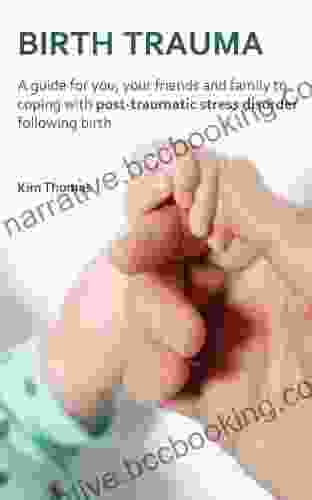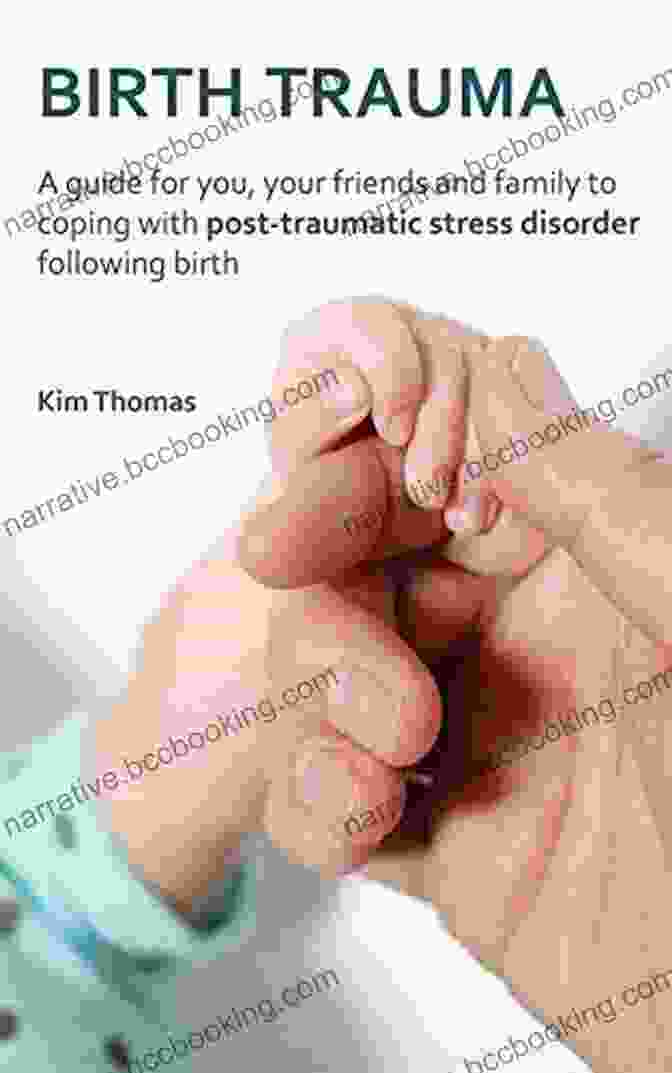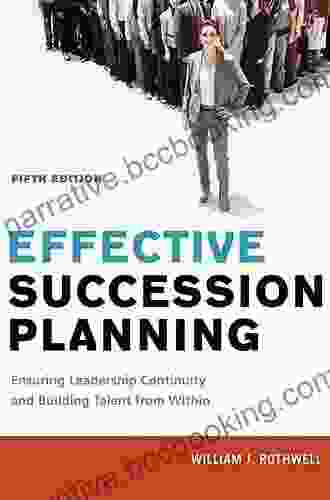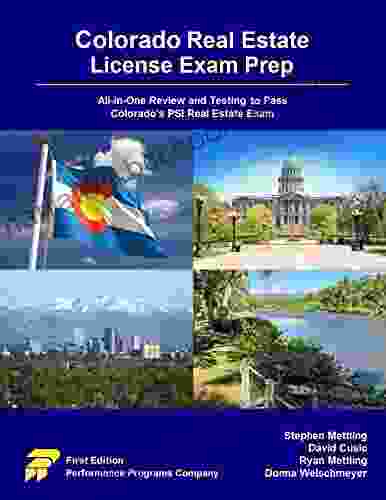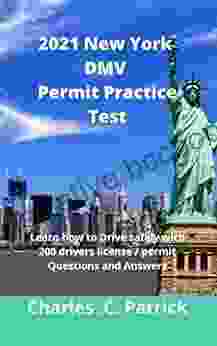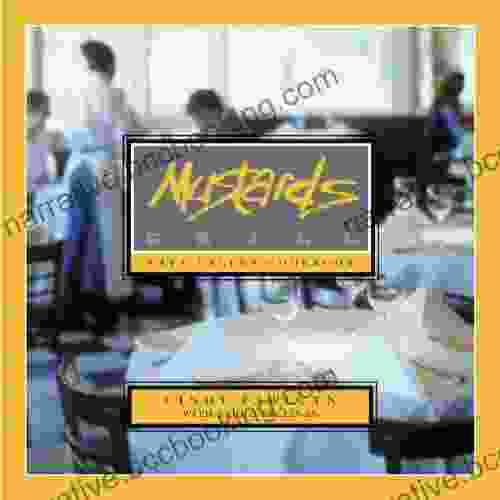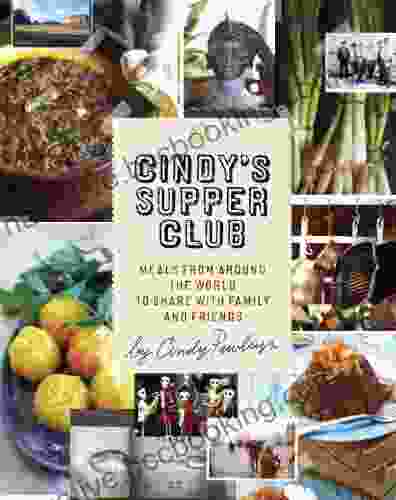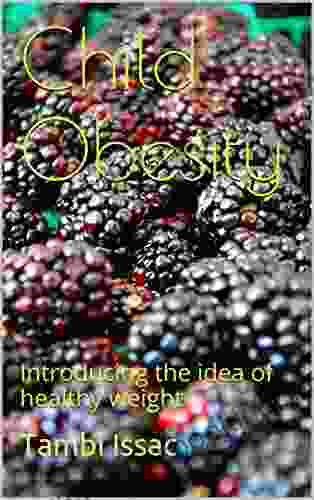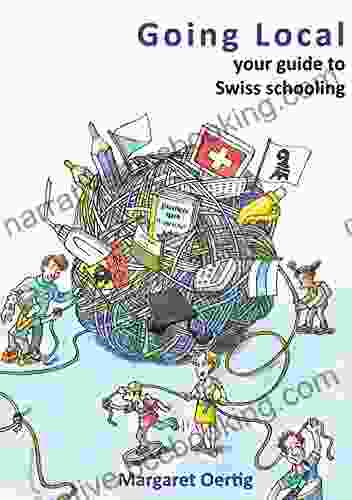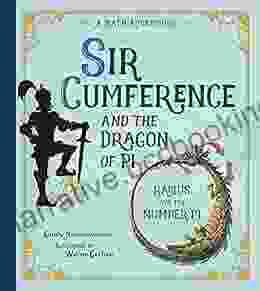Post-traumatic stress disFree Download (PTSD) is a complex mental health condition that can develop after exposure to a traumatic event. Symptoms of PTSD can include flashbacks, nightmares, avoidance, and hypervigilance. These symptoms can make it difficult to live a normal life and can cause significant distress.
4.7 out of 5
| Language | : | English |
| File size | : | 257 KB |
| Text-to-Speech | : | Enabled |
| Screen Reader | : | Supported |
| Enhanced typesetting | : | Enabled |
| Word Wise | : | Enabled |
| Print length | : | 164 pages |
| Lending | : | Enabled |
This guide is designed to provide you with the information and tools you need to cope with PTSD. You will learn about the causes and symptoms of PTSD, as well as the different treatment options available.
You will also find practical strategies for coping with the symptoms of PTSD, such as:
- Grounding techniques
- Breathing exercises
- Thought-stopping techniques
- Imagery techniques
- Self-care techniques
In addition to providing information and strategies for coping with PTSD, this guide also includes firsthand accounts from people who have experienced PTSD. These stories will provide you with hope and inspiration, and they will remind you that you are not alone.
If you are struggling with PTSD, it is important to seek professional help. A therapist can help you develop a treatment plan that is tailored to your individual needs.
With the right treatment, you can overcome PTSD and live a full and happy life. This guide will provide you with the knowledge and tools you need to get started on your journey to recovery.
What is PTSD?
PTSD is a mental health condition that can develop after exposure to a traumatic event. A traumatic event is an event that is outside the range of usual human experience and that would be markedly distressing to almost anyone.
Examples of traumatic events include:
- Natural disasters
- Serious accidents
- Violent crimes
- Terrorist attacks
- War
- Sexual assault
- Childhood abuse or neglect
PTSD can develop at any age, but it is most common in adults who have experienced a traumatic event in adulthood.
Symptoms of PTSD
Symptoms of PTSD can vary from person to person, but they typically fall into four categories:
- Intrusive memories. These are unwanted memories of the traumatic event that can be triggered by anything that reminds the person of the event.
- Avoidance. People with PTSD often avoid people, places, or activities that remind them of the traumatic event.
- Negative changes in mood and thinking. People with PTSD may experience negative changes in their mood and thinking, such as feeling numb, detached, or hopeless.
- Increased arousal. People with PTSD may experience increased arousal, such as feeling jumpy, irritable, or having difficulty sleeping.
Treatment for PTSD
There are a variety of effective treatments for PTSD, including:
- Trauma-focused therapy. This type of therapy helps people with PTSD to process the traumatic event and to develop coping mechanisms.
- Cognitive-behavioral therapy (CBT). CBT helps people with PTSD to identify and change negative thoughts and behaviors that are contributing to their symptoms.
- Eye movement desensitization and reprocessing (EMDR). EMDR is a type of therapy that uses eye movements to help people with PTSD to process traumatic memories.
- Medication. Medication can be helpful in managing the symptoms of PTSD, such as anxiety, depression, and insomnia.
Coping with PTSD
In addition to seeking professional help, there are a number of things you can do to cope with PTSD on your own:
- Educate yourself about PTSD. The more you know about PTSD, the better equipped you will be to understand your symptoms and to develop coping mechanisms.
- Talk to someone who understands. Talking to a therapist, counselor, or trusted friend or family member can help you to process your emotions and to develop coping strategies.
- Join a support group. Support groups can provide you with a sense of community and support from others who understand what you are going through.
- Take care of yourself. Eating healthy foods, getting regular exercise, and getting enough sleep can help you to manage your symptoms and to improve your overall health.
- Practice relaxation techniques. Relaxation techniques such as yoga, meditation, and deep breathing can help you to reduce stress and to manage your symptoms.
- Avoid alcohol and drugs. Alcohol and drugs can worsen PTSD symptoms and make it more difficult to recover.
Supporting someone with PTSD
If you know someone who is struggling with PTSD, there are a number of things you can do to support them:
- Be supportive and understanding. Let your loved one know that you are there for them and that you understand what they are going through.
- Encourage them to seek professional help. Therapy is the most effective way to treat PTSD, and it is important to encourage your loved one to get the help they need.
- Help them to practice coping mechanisms. Talk to your loved one about the coping mechanisms that they are using and help them to develop new strategies if needed.
- Take care of yourself. Supporting someone with PTSD can be emotionally draining, so it is important to take care of your own mental health as well.
PTSD is a serious mental health condition, but it is important to remember that there is hope for recovery. With the right treatment and support, you can overcome PTSD and live a full and happy life.



